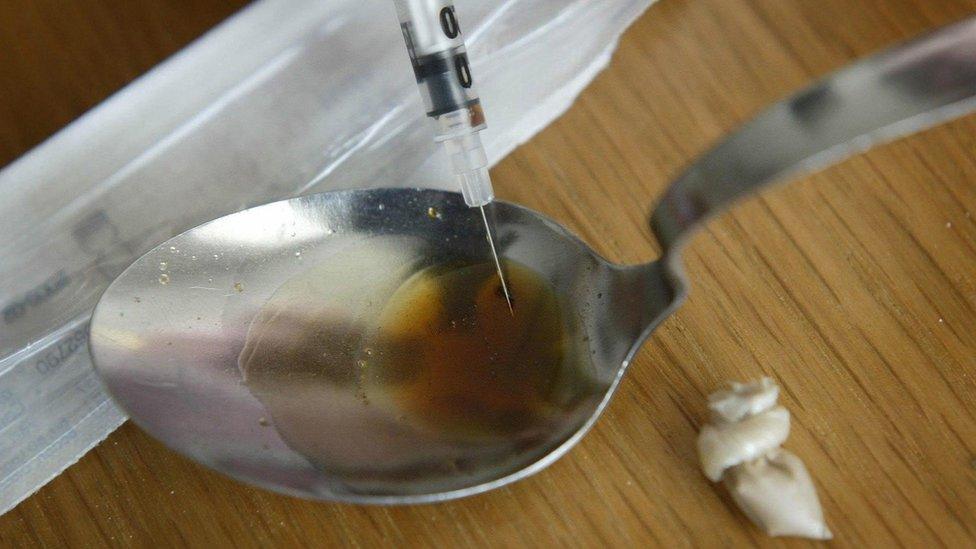Drug-related deaths reach record levels in England and Wales
- Published
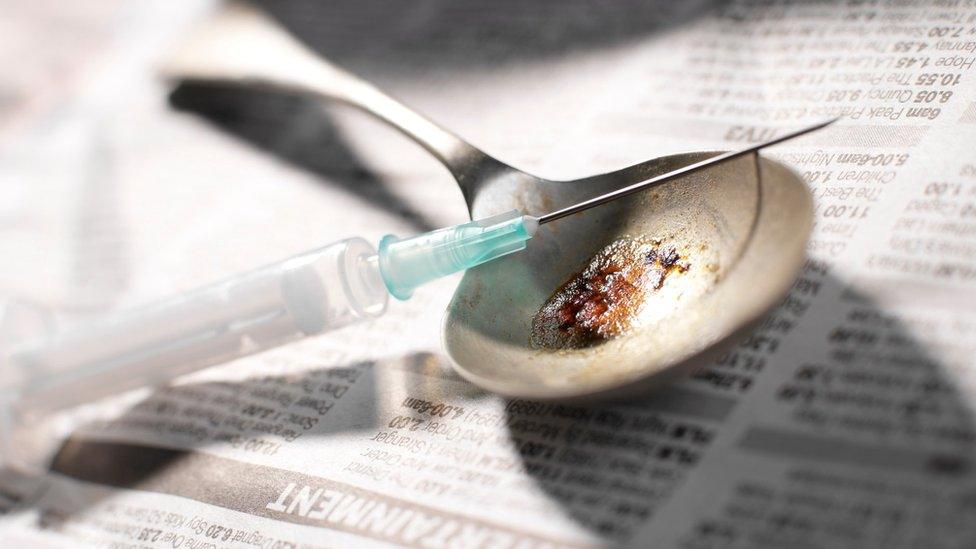
The number of drug-related deaths in England and Wales reached record levels last year, figures from the Office for National Statistics (ONS) show.
Overall, 3,674 drug poisoning deaths involving legal and illegal substances were registered in 2015. Of these, 2,479 involved illegal drugs only.
Fatalities involving heroin and cocaine were both at their highest since comparable records began in 1993.
The increasing purity of substances is believed to be a possible factor.
ONS researcher Vanessa Fearn said that age was another cause for the increase, particularly with older heroin users.
The Department for Health said overall drug use was declining.
The ONS said the mortality rate, external from drug misuse was the highest ever recorded, at 43.8 deaths per million population.
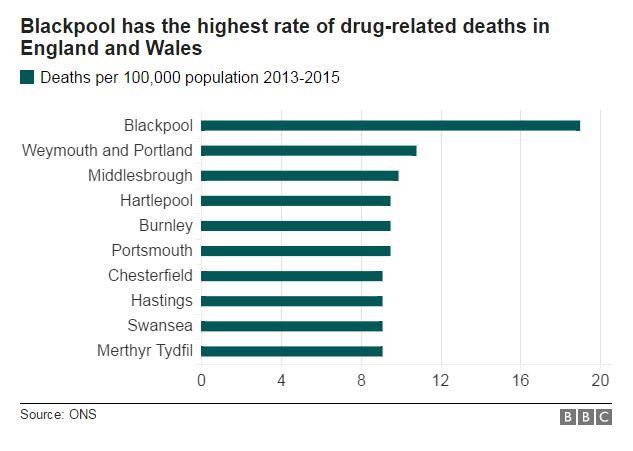
Blackpool had the highest rate of drug-related deaths, with 19 per 100,000.
Ms Fearn said people receiving treatment for drug abuse were "older than they used to be".
She added: "Deaths involving heroin and morphine have more than doubled since 2012, partly driven by a rise in heroin purity and availability over the last three years.
"Age is also a factor in the record levels of drug deaths, as heroin users are getting older and they often have other conditions, such as lung disease and hepatitis, that make them particularly vulnerable."
The death rate among people aged 30-39 is now at a record high, at 98.4 deaths per million population.
And deaths in the 40-49 bracket are also at a record high, with 95.1 deaths per million.
Ms Fearn also said 2014 was a record year for heroin production globally, which might also be impacting on the current availability of heroin.
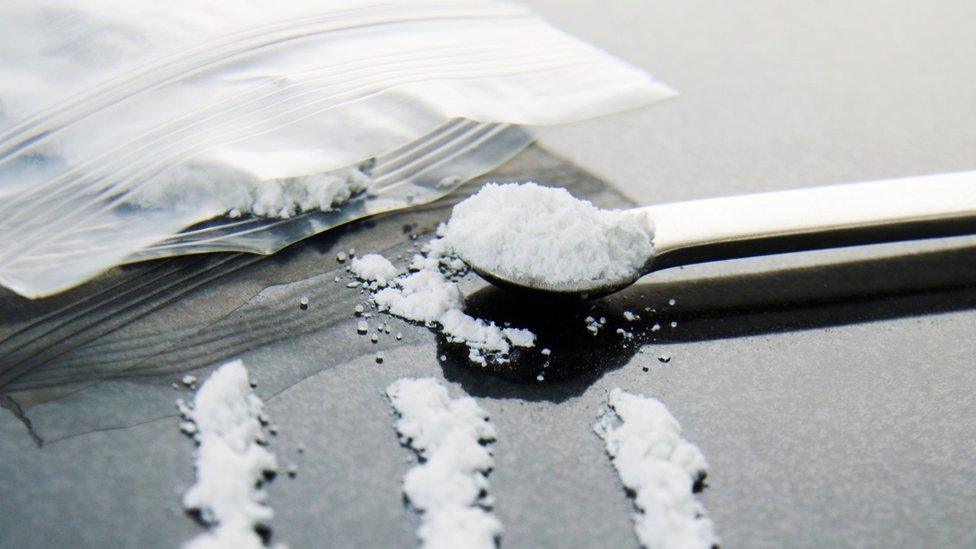
Cocaine deaths are on the rise, particularly in men aged 30-49
The figures showed that there were 320 deaths involving cocaine, up from 247 in the previous year.
Mortality rates relating to that drug have increased for four consecutive years, with most cocaine-linked fatalities occurring in men aged 30 to 49.
The figure for cocaine-related deaths will include some where it was taken in the form of crack cocaine, as it is not possible to separately identify crack from other forms of the drug in post-mortem tests, the ONS report said.
It added: "Since cocaine is often taken alongside heroin, it is likely that changes in the purity and availability of heroin, as well as increases in the purity of cocaine, are contributing to the rise in deaths involving cocaine in recent years."
Deaths linked to new psychoactive substances - formerly known as "legal highs" - have also increased over the last five years, with 114 registered last year.
These substances were banned earlier this year.
Public Health England and the Local Government Association put together a panel of experts to look into how to combat the rise of drug-related deaths.
The group's findings were also published on Friday, external and recommended that improvements had to be made in access to good quality drug treatment, which is tailored to the needs of the user.
Rosanna O'Connor, who is the director of drugs, alcohol and tobacco at Public Health England, said: "There is considerable variation across the country, with some regions showing large increases in recent years.
"Public Health England will continue to support local authorities in delivering tailored, effective services where people stand the best chance of recovery."
Education strategy
Izzi Seccombe, chairman of the Local Government Association's community wellbeing board, also said councils were committed to helping to ensure drug users got support for treatment, and were spending more on drug and alcohol treatment than in any other area of public health.
She added: "However, with public health grants for local authorities being cut by 9% over the next four years... no service is immune from spending reductions, which could seriously undermine our efforts to prevent all kinds of major health conditions."
A Department of Health spokesman said: "Any death related to misuse of drugs is a tragedy.
"While overall drug use continues to decline, our approach is to get people off drugs for good, with decisions on treatment based on an individual's clinical need.
"We are also developing a new strategy which will include help to educate young people about the risks."
- Published17 August 2016
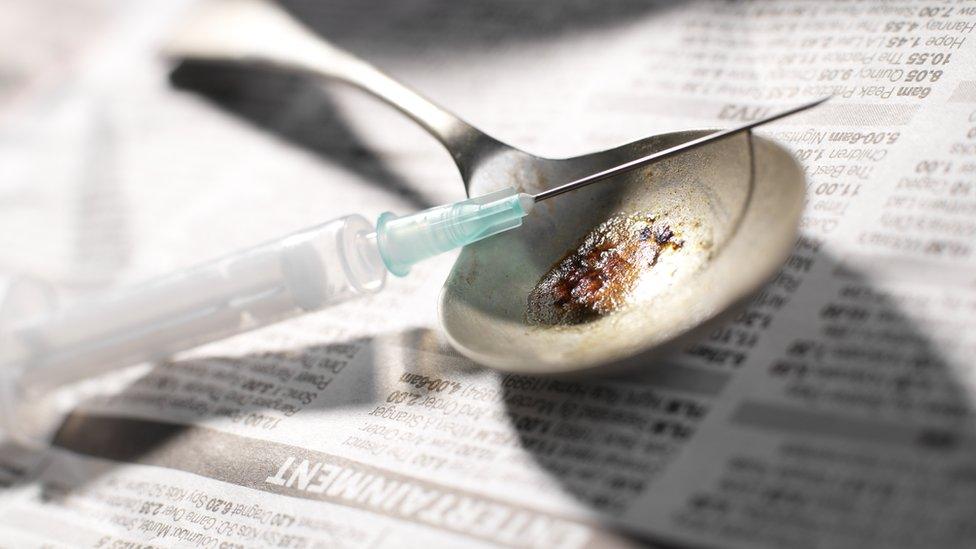
- Published31 August 2016
